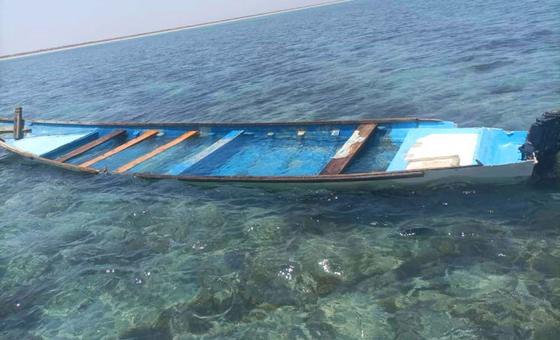At least 49 migrants have been killed, including many women and children, and a further 140 are missing after the boat they were on capsized off the coast of Yemen on Monday, the UN International Organization for Migration (IOM) has reported.
Some 260 people were abroad the vessel that had departed from Bossaso, in northeast Somalia, in the early hours of Sunday, bound for Yemen, about 330 kilometres (about 205 miles) away.
“This recent tragedy is another reminder of the urgent need to work together to address urgent migration challenges and ensure the safety and security of migrants along migration routes,” Mohammedali Abunajela, IOM spokesperson, said in a news release on Tuesday.
“Our thoughts are with the victims and their families as we remain committed to supporting survivors and improving search and rescue efforts in the region.”
Search and rescue efforts are ongoing despite significant challenges due to a shortage of operational patrol boats, a situation further complicated by the ongoing conflict.
IOM support
Seventy-one people, including six children, have been rescued and are being supported by IOM.
The agency has mobilized two mobile medical teams to provide immediate assistance, and its psychologists are providing mental health support.
Local community members, including fishermen, played a crucial role in the aftermath by assisting with the recovery efforts and helping to lay the deceased to rest at a cemetery.

An IOM team provides medical assistance to a survivor.
Repeated sinkings
The latest tragedy comes on the back of two separate shipwrecks on the same route along the coast of Djibouti, claiming the lives at least 62 migrants.
There has been a sharp rise in migrants travelling from the Horn of Africa to Yemen, spurred by political and economic instability, alongside severe droughts and other extreme weather events in countries like Ethiopia and Somalia.
Despite the ongoing conflict in Yemen, thousands of migrants continue to transit through the country in hopes of reaching Saudi Arabia and neighbouring nations.
The majority of those undertaking the journey rely on irregular routes or smugglers, placing them at an increased risk, including of human trafficking or drowning in rough seas on rickety boats.
Since 2014, IOM has documented 1,860 migrant deaths and disappearances along that route, including 480 due to drowning.

